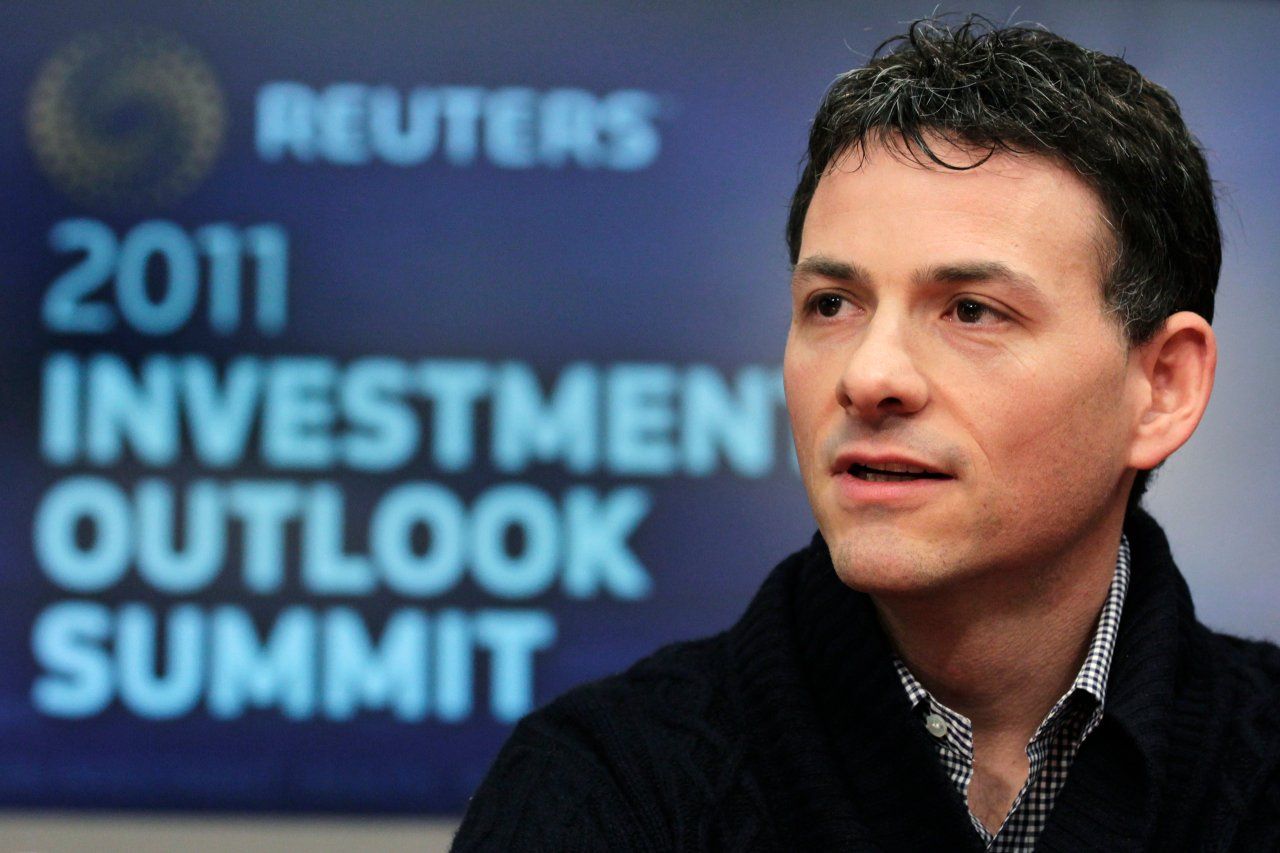
When Apple CEO Tim Cook took the stage at San Francisco's Palace Hotel to speak at an investment conference on February 11, the first questions weren't about the next iteration of the iPhone. Instead, analysts asked the CEO about a lawsuit that had just been filed by New York-based investor David Einhorn.
The 44-year-old proprietor of the hedge fund Greenlight Capital believes Apple "has a cash problem," as he told CNBC. It has too much of it. Einhorn has compared Apple to his "Grandma Roz," who lived through the Depression and was so focused on pinching pennies that she wouldn't leave him messages on his answering machine. Einhorn has sued Apple over a proposed governance change that would limit the company's ability to sell new preferred stock—the mechanism he has proposed Apple use to funnel some of its $137 billion cash pile back to shareholders.
Einhorn, who parlayed $500,000 in 1996 to an $8.8 billion fund today (cumulative return: 1,829 percent), has a history of tilting at very large windmills. A Midwesterner with a low-key mien—"very mild-mannered, but almost passive-aggressive," according to a financial-industry veteran—he possesses some very large scalps.
His modus operandi is to take deep dives into corporate balance sheets and make lengthy, sustained public cases about the merits (or faults) of stocks. For six years, he pursued a small financial company in which he held a short position, Allied Capital, compiling presentations on what he viewed as the company's suspect accounting methods. Then he wrote a 2008 book about it: Fooling Some of the People All of the Time. In October 2011 he used an hourlong, 110-slide presentation to argue that Green Mountain Coffee, the high-flying manufacturer of coffee pods, was overvalued.
Einhorn's fame—and a good chunk of his fortune, which Forbes pegs at $1.2 billion—stems in large measure from his 2007 decision to short Lehman Brothers. As the financial crisis mounted, Einhorn relentlessly delved into the giant company's balance sheet and queried executives and the ratings agencies over their assessment of Leh—man's health. When Lehman went bust in September 2008, it was a huge vindication—and a boost to his fund's bottom line.
Einhorn knows how to use the financial media; his wife, Cheryl, worked at Barron's for several years. But he's more self-contained than many of the preening hedge funders who have taken to holding reality TV–style clashes over stocks on CNBC. He lives in the suburbs, in Westchester County, New York, not on Fifth Avenue. He looked into buying a stake in the New York Mets in 2011 but backed out. When Einhorn finished third in the 2012 Big One for One Drop poker tournament in Las Vegas, he donated his $4.35 million in winnings to the nonprofit group City Year.
Not all of Einhorn's bets have worked out so well. A loss in the last few months of 2012 caused Greenlight Capital to post a market-lagging 7.9 percent return for the year. "The disappointing fourth quarter result reduced our year from good to pedestrian," Greenlight noted to investors in a January letter that was filled with puns and references to stocks—i.e., "our coffee was too hot, our apple was bruised." That last bit was a reference to the decline in the shares of Apple—one of Greenlight's largest positions.
Biting Apple would seem to be the ultimate quixotic quest. "Apple traditionally doesn't give a damn about what other people think about how it does anything," said Adam Lashinsky, author of Inside Apple. Tim Cook labeled Einhorn's lawsuit "silly."
Einhorn isn't a technology guy. But he has certain personality traits that are highly recognizable in Silicon Valley. A person who has worked with the investor said that he is clearly the smartest guy in the room, but is insecure and not always the most socially adept. "He's like the Mark Zuckerberg character in The Social Network."
Uncommon Knowledge
Newsweek is committed to challenging conventional wisdom and finding connections in the search for common ground.
Newsweek is committed to challenging conventional wisdom and finding connections in the search for common ground.





